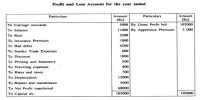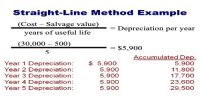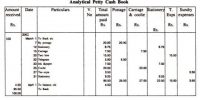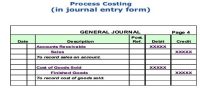Depreciation is a decrease in the price of an asset with the course of time, due in particular to wear and tear. All assets whose advantage is derived for a long period of time, generally more than one year period are called as Fixed Assets. These assets reduce in value year after year due to wear and tear or lapse of time. This reduction in value of Fixed Assets is called Depreciation.
Depreciation is the measure of wearing out of a fixed asset. All fixed assets are expected to be less efficient as time goes on and as they are continuously used in a business, for example.
In the words of Spicer and Pegler, “Depreciation is the measure of the exhaustion of the efficient life of an asset from any cause during a given period”.
Carter defines depreciation as “the gradual and permanent decrease in the value of an asset from any cause”.
Generally, the term ‘depreciation’ is used to denote decrease in value, but in accounting, this term is used to denote decrease in the book value of a fixed asset. Depreciation is the permanent and continuous decrease in the book value of a fixed asset due to use effluxion of time, obsolescence, expiration of legal rights or any other cause.
Example:
Depreciation is the assigning or allocating of a plant asset’s cost to expense over the accounting periods that the asset is likely to be used. For example, if a business purchases a delivery truck with a cost of $100,000 and it is expected to be used for 5 years, the business might have depreciation expense of $20,000 in each of the five years. (The amounts can vary depending on the method and assumptions.)
In our example, each year there will be an adjusting entry with a debit to Depreciation Expense for $20,000 and a credit to Accumulated Depreciation for $20,000. Since the adjusting entries do not involve cash, depreciation expense is referred to as a noncash expense.
The above explanation reveals that when fixed assets are used in business to make income, they lose their manufacture capacity or earning capacity and at an exacting point of time they render themselves useless. This decrease in the manufacture capacity or earning capacity is termed as depreciation.














